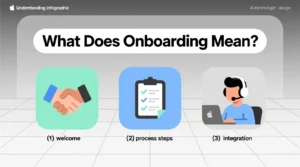Ever opened your credit report, seen the term “charged off”, and felt your stomach drop? Same. The first time I came across it, I thought it meant the debt magically disappeared — like some kind of financial glitch blessing me from above. Spoiler: it wasn’t. Instead, it left me confused, googling like and trying to figure out whether it was a good thing or a very bad thing.
If you’ve seen “charged off” in a text, email, or credit-related message, here’s the simple version:
Quick Answer:
Charged off means “a debt your lender has written off as unpaid.” It’s a formal financial term, not slang, used to show that the lender doesn’t expect payment — but you still owe the money.
What Does Charged Off Mean in Text?
When you see “charged off”, it means the lender officially marked your debt as uncollectible after several months of missed payments (usually 180 days).
It doesn’t mean the debt disappears — it simply moves from “active account” to “written-off debt.”
Example sentence:
“My credit card account was charged off after I missed six months of payments.”
In short: charged off = written-off debt = still owed but moved out of active accounts.
Where Is Charged Off Commonly Used?
You’ll mostly see “charged off” in financial communication, not casual texting. It appears in:
- 📄 Credit reports
- 🏦 Bank emails
- 💳 Credit card statements
- 📱 Finance blogs & consumer help chats
- 💬 Customer support conversations
Tone-wise, it’s:
- ❌ Not casual
- ❌ Not slang
- ✔️ Formal and official
- ✔️ Used in professional or financial contexts
Examples of Charged Off in Conversation
A: hey my credit score dropped a lot 😭
B: check if any account got charged off
A: they said my loan is charged off… what does that mean
B: it’s written off but you still owe it
A: i ignored the payments for months
B: yeah that’s why the bank charged it off
A: does charged off mean forgiven?
B: nope, you still have to pay
A: bro my credit report looks scary
B: any charged off accounts on it?
A: lender messaged me about a charged off balance
B: you should ask them about settlement options
The When to Use and When Not to Use Charged Off
When to Use
- ✔️ When talking about credit reports
- ✔️ When explaining debt status
- ✔️ When discussing financial problems with someone
- ✔️ In professional or formal contexts about payments
When Not to Use
- ❌ In friendly or casual chats unrelated to finances
- ❌ In jokes (it’s too serious)
- ❌ In flirty or informal messages
- ❌ When you mean “forgiven” or “cancelled” — it’s not the same
Comparison Table
| Context | Example Phrase | Why It Works |
|---|---|---|
| Friend Chat | “my card got charged off… i messed up 😬” | Casual + honest financial talk |
| Work Chat | “the account was charged off last quarter.” | Professional & factual |
| “This balance has been charged off in our records.” | Formal, accurate, clear |
Similar Slang Words or Alternatives
| Term | Meaning | When to Use |
|---|---|---|
| Written Off | Debt marked as uncollectible | Formal reports & emails |
| Defaulted | Failure to pay a loan | Loan discussions or financial documents |
| Delinquent | Late or missed payments | Early stages of debt issues |
| Collections | Debt sent to collectors | When talking about third-party agencies |
| Settled | Paid for less than owed | When negotiating payoff amounts |
FAQs About Charged Off
Is a charged-off debt still owed?
Yes. The lender wrote it off, but the debt remains your responsibility.
Does charged off mean forgiven?
No. It only changes the bookkeeping status — the money is still owed.
Can a charged-off account be removed from my credit report?
It stays for up to seven years but can be updated to “paid” if you settle it.
Can collections contact me after a charge-off?
Yes. Debt collectors often take over after the charge-off.
Is charged off the same as closed?
No. A closed account isn’t necessarily unpaid. A charged-off account means unpaid and written off.
Discover More Artical
- What Does an Upside Down Cross Mean How Is It Used in Real Life?
- What Does Bereavement Mean and How Is It Used in Real Life?
- What Does a Blue Aura Mean? A Simple Guide for Beginners

Ava Grace is a passionate storyteller whose words breathe life into unforgettable characters and emotionally rich narratives. With a gift for weaving romance, mystery, and raw human emotion into every page, Ava has captivated readers from all walks of life. Her writing is marked by authenticity, compassion, and a deep understanding of the human heart.
Driven by her love for literature and a desire to connect with others through story, Ava Grace began her writing journey with a simple idea: that every heart has a story worth telling. Her novels often explore themes of love, loss, healing, and redemption — offering readers not just entertainment, but reflection and hope.
Whether she’s writing about quiet strength or bold resilience, Ava’s characters always feel real — and their stories, unforgettable. Her work continues to inspire a loyal and ever-growing readership who find comfort, excitement, and truth within her pages.
Notable Works by Ava Grace:
-
Whispers of the Heart
-
The Light Between Shadows
-
When Love Finds You










